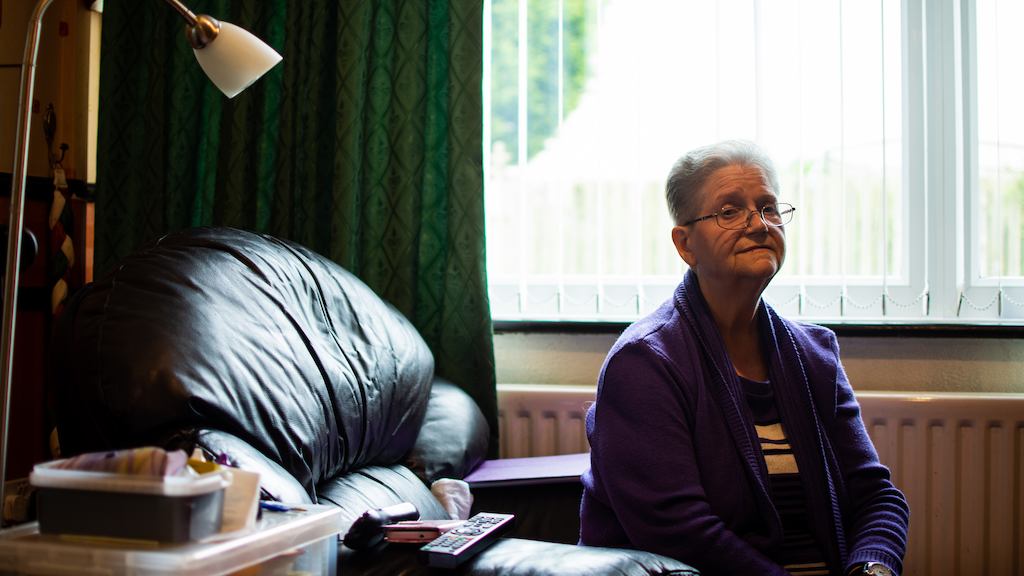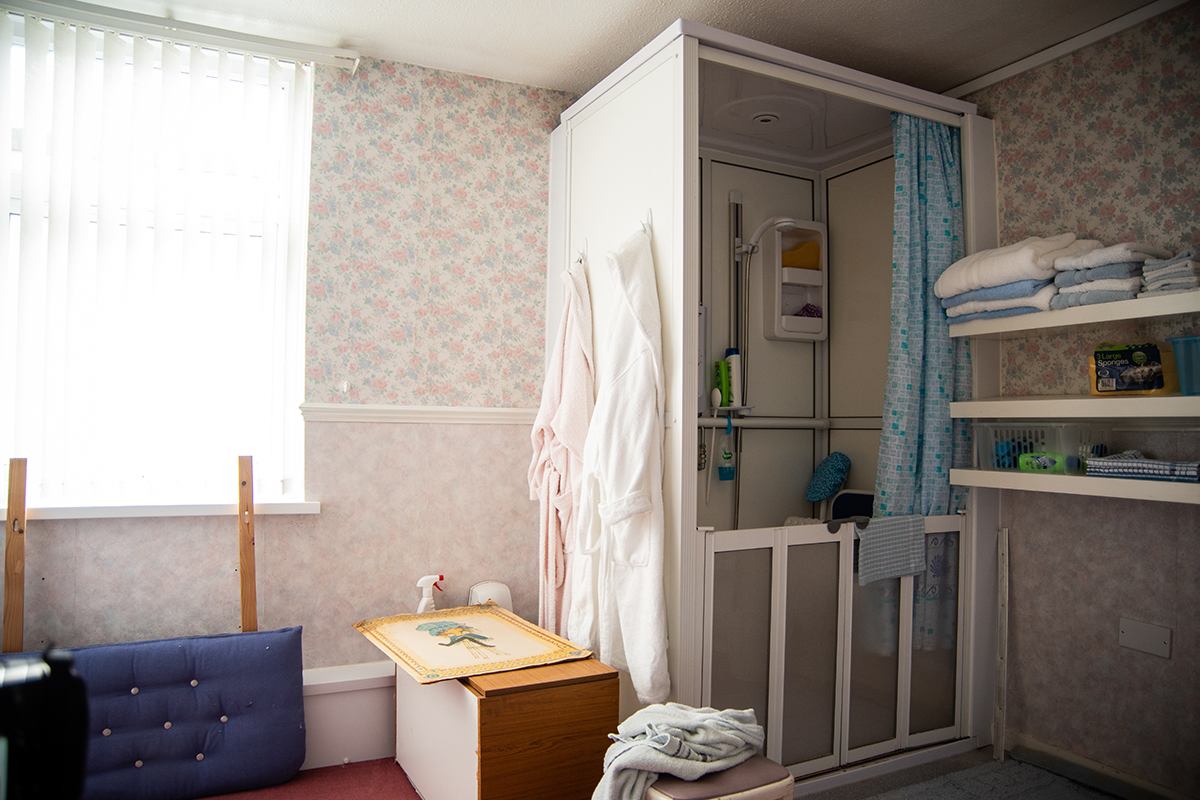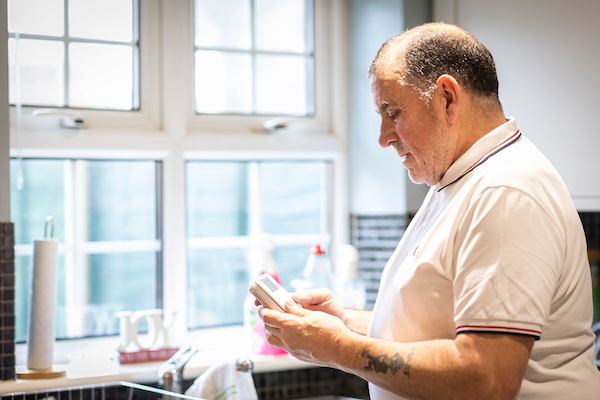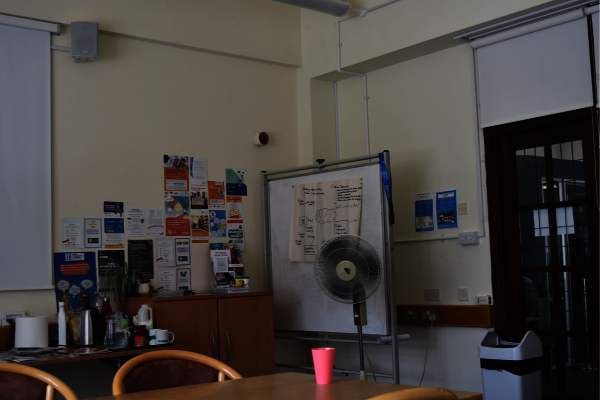Gina's voice

"I waited nearly two years for my walk-in shower. But it's good. It's worth it."
Gina lives on her own in the same house that she used to share with her mum. She has been there for 51 years and is nicely settled. It was after Gina’s second knee replacement operation that her occupational therapist advised she should get a walk-in shower. Gina agreed. But there was a long delay between being told she couldn’t bathe anymore and getting a shower fitted. During this time, Gina’s granddaughter would come and sit with her while she bathed. “It wasn’t every day”, she explains, “I didn’t want to make so much use of her, whereas now I can go in the shower every morning and I’m capable of getting in and getting out”. She concludes that life before her walk-in shower was “very complicated”.

When the shower was being installed, Gina found herself not entirely in control of the process. The fitters decided they couldn’t put the shower in her bathroom, and made the choice to install it in her bedroom instead. It was a decision that left Gina having to move out of her bedroom to sleep in a different room of the house: “They put it in the back bedroom just above here. So I hadn’t a choice.” Despite the wait, Gina is happy with her shower. She can wash every day and whenever she wants, and the running water helps soothe her arthritis, “I waited nearly two years for it. But it’s good. It’s worth it”. Other adaptations to her house have also been a success. She now has four grab rails and can get in and out of the house with less difficulty.
Watch Gina open up about what having a walk-in shower means to her:
Being registered blind, Gina has also had to make other adaptations to the house. Little things, like making a cup of tea and not knowing when the water has reached the top of the mug, would have previously been impossible without the equipment, gadgets and advice that she has received. She regularly visits Newcastle Vision Support where she gets regular help and advice, and has also had counselling to help with the challenges of losing her sight. “The girls are brilliant,” she says. She is also a regular at the Knit and Natter club where, by Gina’s own admission, not a huge amount knitting gets done, but a lot of laughing and chatting does instead.
Whether it’s family members helping out, visits from the occupational therapist or home adjustments being made by the local authorities, Gina says that everything has been beneficial. Perhaps the process would have been smoother if she had access to better information about the help available to her, but her stoic pragmatism is admirable: “It’s no good whingeing about it”, she says, her hands pushing away the idea of such a thing.



